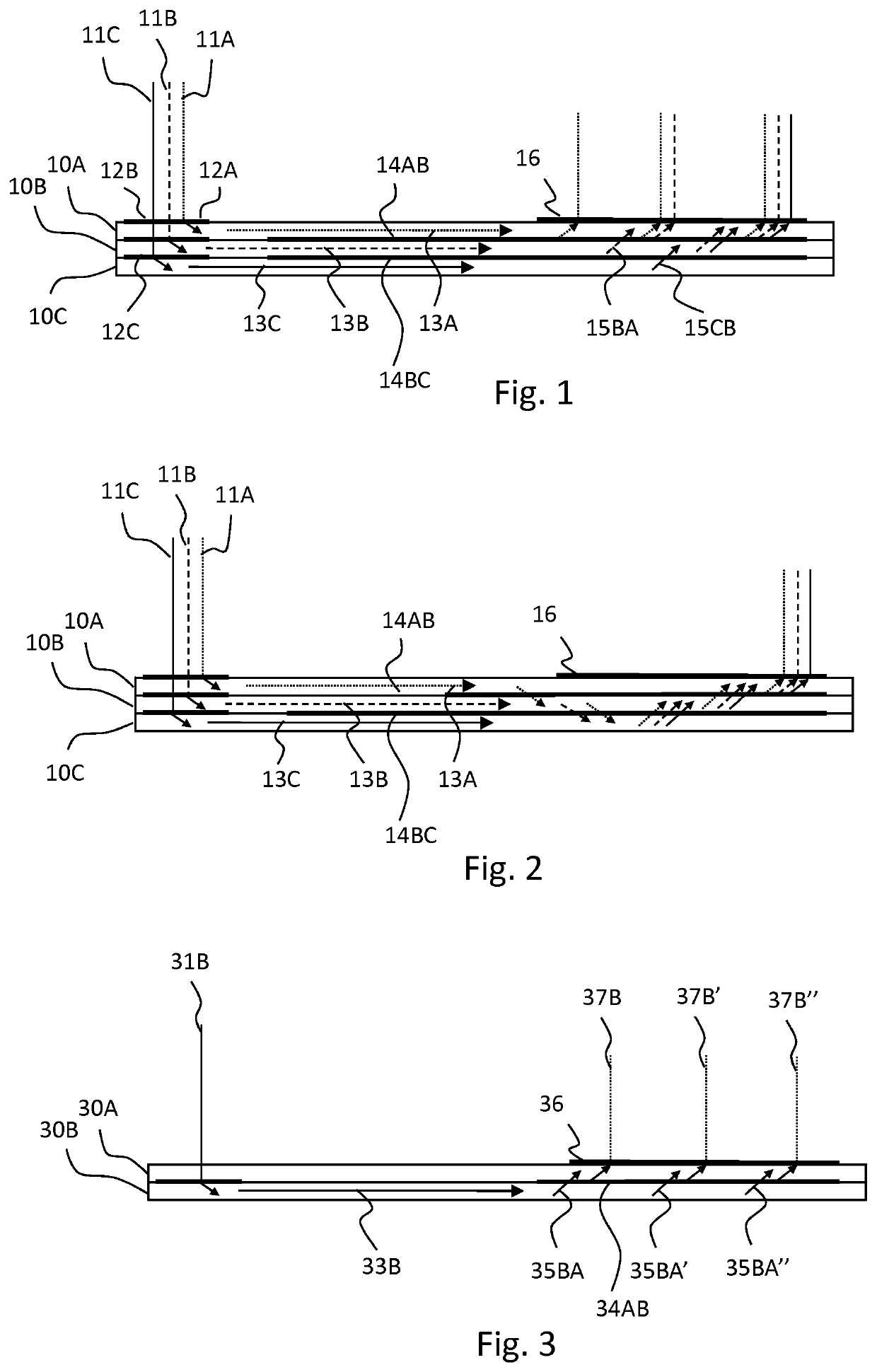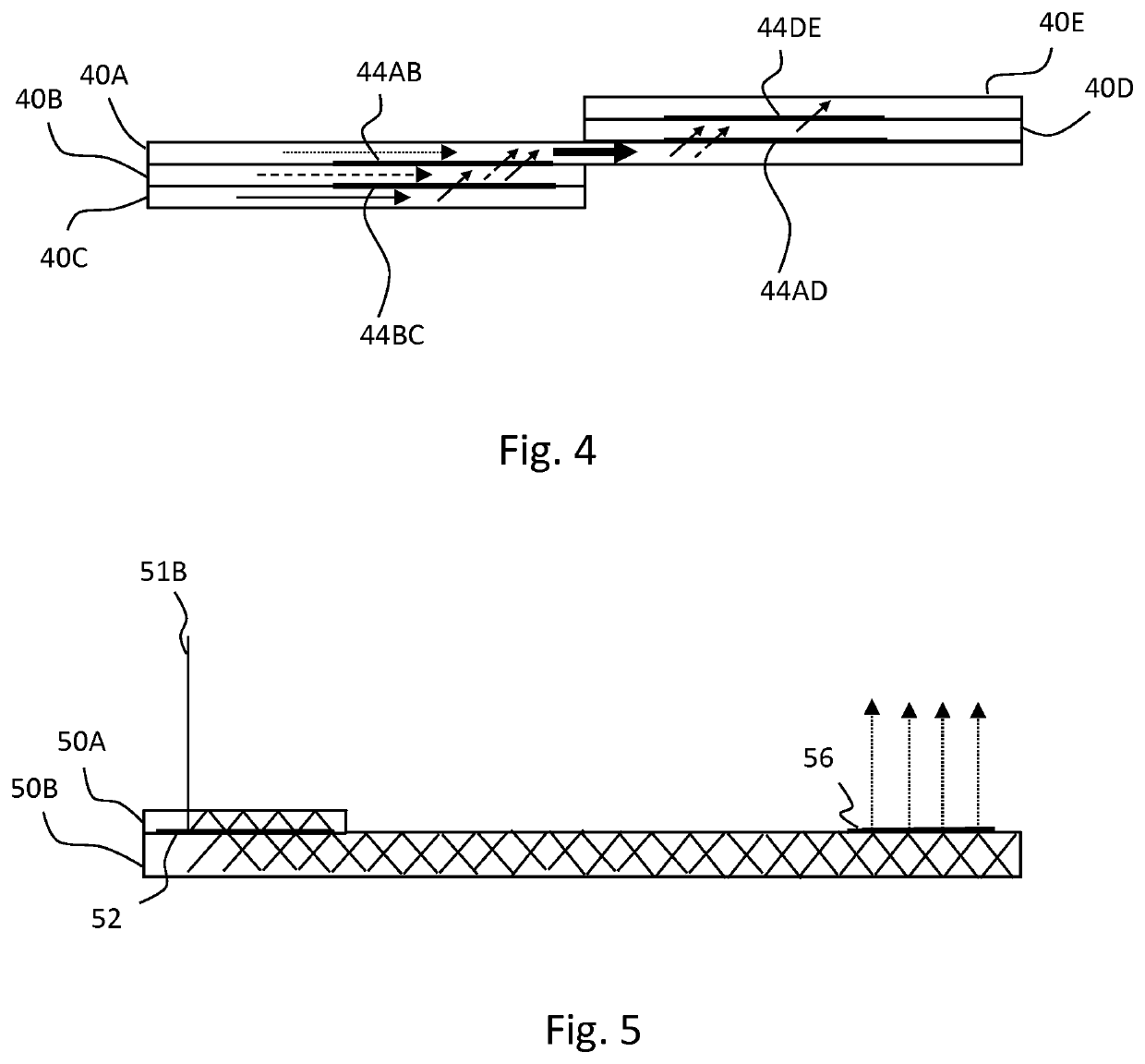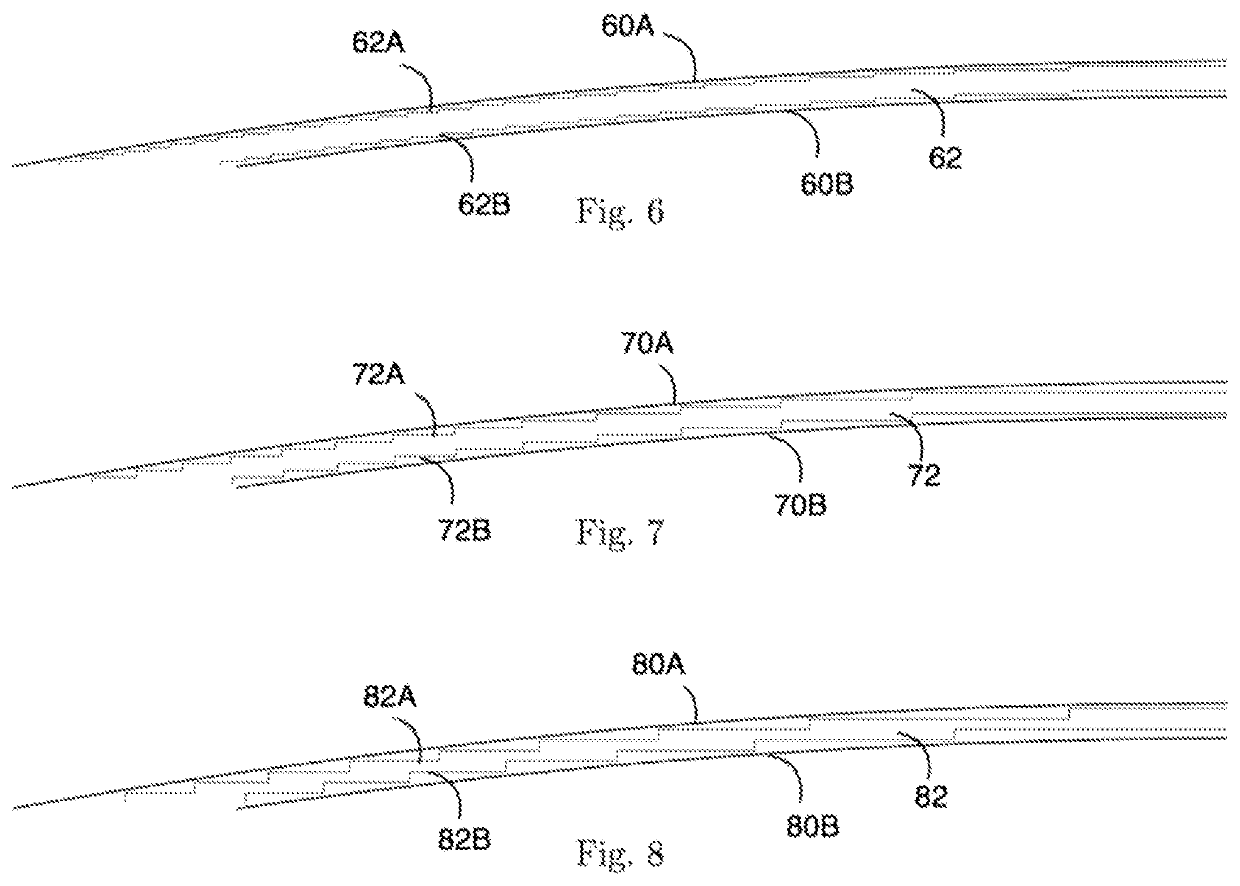Multilayer waveguide display element
a multi-layer waveguide and display element technology, applied in the field of diffractive waveguide display elements, can solve the problem of relatively limited disclosure schemes
- Summary
- Abstract
- Description
- Claims
- Application Information
AI Technical Summary
Benefits of technology
Problems solved by technology
Method used
Image
Examples
Embodiment Construction
[0028]Definitions
[0029]The term “diffractive optical element” (DOE) refers to a zone of the waveguide body comprising a physical structure capable of diffracting light. The structure typically comprises a pattern of features having a size of 1 μm or less. The DOE may be either periodic or non-periodic and have a constant (single-region) or non-constant diffractive optical response over its area. A non-constant diffractive optical response DOE may be a multi-region DOE.
[0030]The term “intermediate DOE” refers to a DOE that is not intended to out-couple light directly therefrom, but to change the propagation path of light rays from one layer to another. Due to imperfections, a certain amount of out-coupling may, however occur. Typically, at least 90% of propagating light hitting the intermediate DOE continues propagation in either the original layer or the new layer, depending on the predefined optical response.
[0031]“Diffractive optical response” of the DOE refers to the change in th...
PUM
| Property | Measurement | Unit |
|---|---|---|
| size | aaaaa | aaaaa |
| diffractive optical response | aaaaa | aaaaa |
| light power distribution | aaaaa | aaaaa |
Abstract
Description
Claims
Application Information
 Login to View More
Login to View More - R&D
- Intellectual Property
- Life Sciences
- Materials
- Tech Scout
- Unparalleled Data Quality
- Higher Quality Content
- 60% Fewer Hallucinations
Browse by: Latest US Patents, China's latest patents, Technical Efficacy Thesaurus, Application Domain, Technology Topic, Popular Technical Reports.
© 2025 PatSnap. All rights reserved.Legal|Privacy policy|Modern Slavery Act Transparency Statement|Sitemap|About US| Contact US: help@patsnap.com



